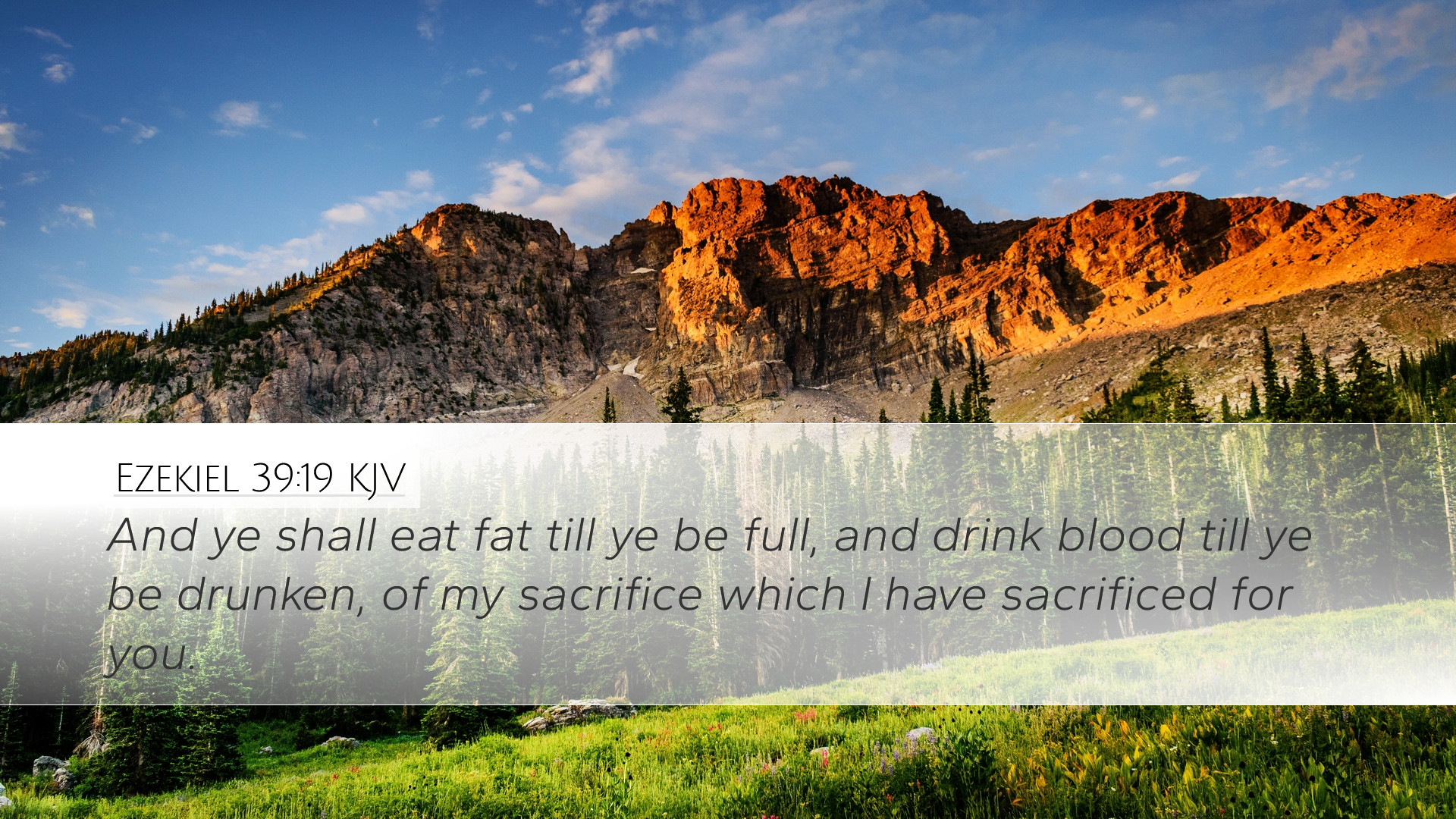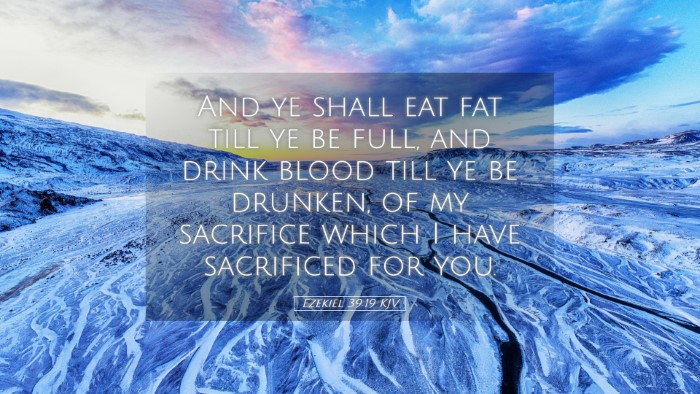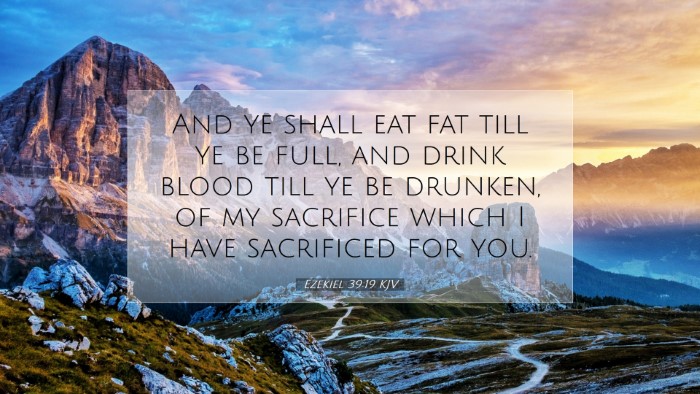Ezekiel 39:19 Commentary
Bible Verse: "You shall eat fat till you are full, and drink blood till you are drunk, at the sacrificial feast that I am preparing for you." (Ezekiel 39:19)
Introduction
This verse from Ezekiel captures a vivid portrayal of divine judgment and the subsequent promise of restoration for Israel and punishment for its enemies. In the context of the entire prophecy, it emphasizes God’s sovereignty over the nations and His commitment to fulfilling His covenant with Israel.
Contextual Background
Ezekiel, a priest and prophet during the Babylonian exile, communicates God’s messages about judgment and hope. Chapter 39 follows the narrative of Gog and Magog, who symbolize the enemies of God's people. The passage encapsulates the idea of divine retribution and the abundance that follows victory in the form of a sacrificial feast.
Verse Analysis
The imagery in Ezekiel 39:19 is rich and metaphorical, encompassing both the ideas of judgment against Gog and the restoration for the house of Israel:
-
Symbolism of Feasting:
The feast represents the blessings that God promises to His people after their adversaries are defeated. Matthew Henry notes that the "fat" symbolizes the abundance of God's provision and the "blood" signifies the lifeblood of the sacrifices, implying a covenant renewal.
-
Divine Retribution:
The consumption of the enemies is described as a feast of victory. Albert Barnes emphasizes that this concept reflects God's justice against those who oppose Him and the preservation of His people, illustrating the ultimate triumph of God's plans for Israel.
Theological Insights
Several key theological themes emerge from this verse:
-
The Sovereignty of God:
In this passage, God's control over nations is highlighted. Adam Clarke remarks that the culmination of God's plan entails a distinct separation between His people and their enemies, underscoring that He orchestrates the events of history according to His divine will.
-
Judgment and Mercy:
While the verse vividly depicts judgment upon the enemies of Israel, it simultaneously assures the faithful of God's mercy and restoration. Henry elucidates that the ultimate destruction of the wicked paves the way for the blessings enjoyed by the chosen people, thus fulfilling the terms of His covenant.
-
Covenantal Faithfulness:
The imagery used indicates a celebration of God's faithfulness to His covenant with Israel. This promise of a joyful banquet reflects a time when God will gather His people and restore them fully, which resonates with the theological themes of hope and redemption throughout scripture.
Practical Applications
The insights derived from Ezekiel 39:19 are not merely historical; they carry significant implications for contemporary believers:
-
Assurance in Trials:
In times of struggle, believers can take comfort in the fact that God is sovereign and ultimately in control. Just as He promised restoration to Israel, He assures us of His presence and future blessings, even amid adversity.
-
Call to Faithfulness:
This passage serves as a reminder of God's expectations for His people to remain faithful to Him. It emphasizes the importance of living according to His principles, understanding that there are consequences for disobedience, as well as rewards for faithfulness.
-
Hope for Redemption:
As we reflect on the imagery of feasting and divine provision, we are reminded of the hope we have in Christ for complete restoration and communion with God—a fulfillment of the renewed covenant established in the New Testament.
Conclusion
Ezekiel 39:19 holds profound significance in its portrayal of divine judgment and the blessing of God's people. Through this verse, we are invited to engage with themes of sovereignty, judgment, mercy, and covenant faithfulness. As believers study this passage, it encourages a deeper understanding of God’s overarching plan and invites reflection on our personal commitment to Him amidst the realities of life.


